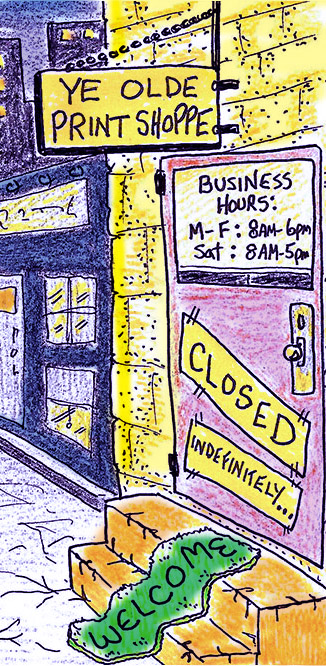Water, Water Everywhere, but Can I have a Drink?

By Andrea Schlack
Many jokingly say that the only things in life one can count upon is death and taxes, but in business, there is a third equal and undeniable reality—–Bad Debt!
Losses to non-paying customers WILL happen! No matter the circumstances, whether if a customer closed its’ doors or simply chose to ignore their obligation to pay, somewhere, sometime, some business will NOT pay for what is due. No matter how you attempt to mitigate the damages bad debt does not discriminate: It occurs to small and big businesses alike. It does not care if you are an old ‘stalwart’ or a new startup, and the losses are not just a consequence of giving credit but rather a by-product of conducting business. So if bad debt is unavoidable, how we handle these financial setbacks can determine our own viability and stability.
There is good news!
Bad debt, when part of a business strategy, actually helps financial growth. Companies who take calculated risks on customers after a careful review of their company details will simply have more customers who pay their bills timely, while those businesses who simply grant terms without considering the consequences will more frequently experience loss —their money walked when the customer’s doors were closed.
My favorite analogy is to like a business to a glass of water, the glass being the company and the water its’ commodity—If the glass is left unattended eventually the water will simply evaporate leaving nothing but a scummy calcified ring, but if the water is replenished regularly it stays fresh and nourishes all those who need to drink.
With the recent closure of several prominent companies, many members have asked ‘What do we do now to get paid’? The sad reality is most businesses today operate underwater therefore once they shut down there is rarely any money left for the trade vendors, hence the importance of understanding your rights before spending good money to chase what may already be gone. Remember once they have closed the doors the longer you wait to react the more likely any potential recovery is dissipated—Time is not a creditor’s friend when the doors have closed.
- Common forms of business closures:
Companies may close by simply turning off the lights or selling the business. They may file an assignment for benefit of creditors, or a receivership, or file for bankruptcy. A secured lender can ‘call the loans and force a closure and/or foreclosure, or creditors could force the shutdown with an involuntary filing of bankruptcy or receivership.
- Do we have any rights once the doors are closed?
Businesses primarily operate as proprietorships, partnerships, or corporations. Proprietors and partners are NOT separate from their company, therefore, a closure does NOT diminish a creditor’s rights upon the individual(s). Corporations are the exact opposite. Corporations are formed primarily to create that separation thus insulating principals and shareholders from liabilities.
–Even if you have rights upon an individual, if their business is closed they may not be any more solvent, so again time is critical if there is any hope of recovery–
- How do we determine what to do?
Look into the facts before spending good money. If it is known that the customer closed its’ doors owing more than the value of the company then obtaining a judgment may give you moral satisfaction but it will NOT pay your bills.
Don’t let your business profits run dry—- When you need to quench your thirst Printing Industry Credit Bureau’s highly trained professionals can lead you to water. Our Debt Collection expertise and our Risk Assessments coupled with our nationwide network of cooperating law firms can help your business make the right decisions and avoid the draught!






A very good article on the inevitability of bad debt. Taking steps to minimize the damage is the only defense the business owner has.